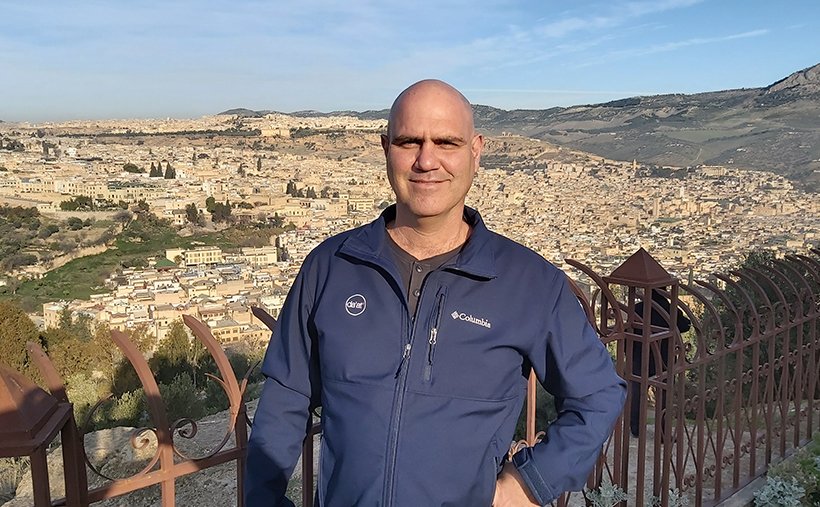YISHAY
Moroccan tradition. Start of something new.

Passover may be over, but there’s still more to celebrate. Today is Mimouna, a traditional festival celebrated by Moroccan Jews the day after Passover, marking the return to eating hametz (leavened bread which is forbidden during Passover). Moroccan and Algerian Jews typically open their homes to visitors after preparing a lavish spread of traditional cakes, including Mofletta, a thin crepe made out of flour, wheat, and oil. Sadly, there will be no gatherings this year, and families will need to be creative how to connect and celebrate on this rich and beautiful holiday. While we aren’t able to travel right now, we thought we’d bring a taste of Morocco to your screens. We asked Yishay Shavit, who returned just a month ago from leading one of our groups in Morocco, to share with us what makes Morocco such a fascinating place to visit.
Today Moroccan Jews across the world celebrate Mimouna. But you experienced a different type of Mimouna when you were in Morocco last month?
Yes, we were lucky enough to meet with three young men from the Mimouna Association, a non-profit organization made up of Muslim students who are dedicated to preserving Moroccan heritage and culture. Think about that for a moment. There are roughly 3,000 Jews living in Morocco, yet the country is working hard to educate young Moroccans about Morocco’s rich Jewish history. The world has a lot to learn from the model of co-existence and peace that exists between Muslims and Jews in Morocco.

You mentioned that there are only 3,000 Jews living in Morocco today. What type of rich Jewish history can visitors expect to experience when they visit Morocco?
Morocco is a rarity in the Arab world, boasting a long and rich history of Arab-Jewish coexistence. At its peak, 250,000 Jews lived in Morocco. In Casablanca, you can visit the only Jewish museum in the Arab world, the Museum of the Jews of Morocco. And while you’re in Casablanca, you can explore Beth-El Synagogue, which is considered the main synagogue in Casablanca and is very active.
In Fes, Jewish life was extremely vibrant once upon a time. You can discover recently restored synagogues and learn about Fes’s influential rabbis, scholars, and teachers, including the Rambam!

What other gems can you expect to find in a Da’at trip to Morocco?
Gosh, there are so many. But picture this for a second: one of the largest mosques in the world, Mosque of Hassan II, can be found in Casblanca, located on the SEA, with hand-carved marble walls, a retractable roof, with room for 100,000 worshipers. It’s breathtakingly beautiful and awe-inspiring.
For a totally different experience, a 45-minute drive from the city of Marrakech will lead you to the highest mountains in North Africa in the Toubkal National Park, providing a spectacularly different view of Morocco with snow-capped peaks, dense forests, and pure mountain air.
We Jews know a thing about hospitality but the Berbers (a tribe and people that have lived in North Africa for thousands of years) provide stiff competition. A lunch in a local family home will include tajine dishes, the slow-cooked savory stews that for centuries has been the taste of North Africa, and of course the drink closely associated with hospitality and friendship in Morocco – mint tea.
And then there’s Djemaa El Fna Square, an enormous marketplace and one of Africa’s most astonishing sites. According to one theory, its name means an assembly of the dead and refers to the public executions that used to take place here. But it’s teeming with life with a daily carnival of snake-charmers, street vendors, musicians, storytellers, and acrobats.

There’s so much to love, enjoy, and appreciate about Morocco. Listen to my short clip taken in Fes to find out what captured my heart. It’s my hope and dream that you will be able to join me in person for our ten-day journey to Morocco this October.

Our thoughts and prayers go out to Morocco’s Jewish community which has sadly been hit hard by the coronavirus, losing 12 of its members, making up 10 percent of Morocco’s total deaths from the virus.

